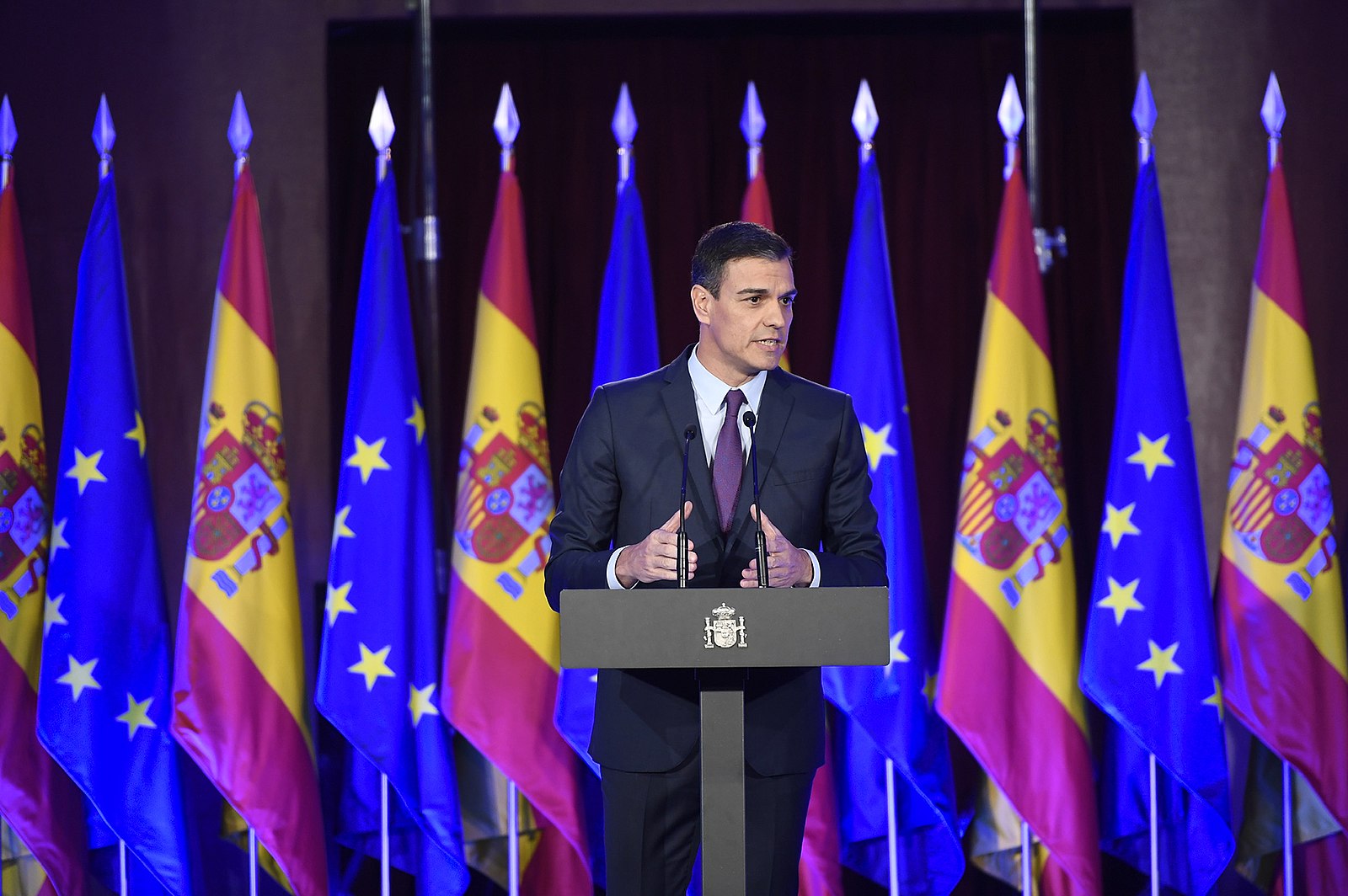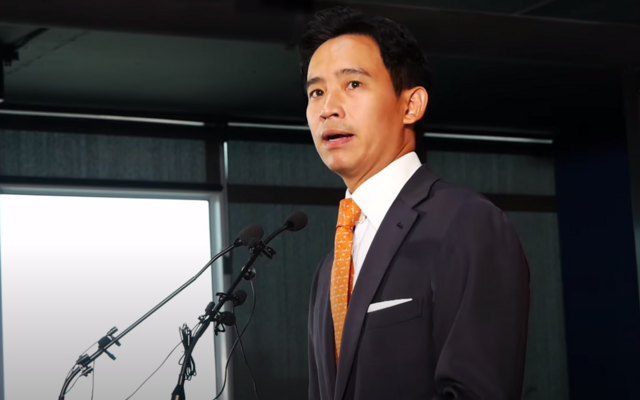“Don’t Tread on Me!”
Image: X
Javier Milei’s election victory on Sunday the 19th of November, where he secured 56% of the votes, marks a paradigm shift in the political conduct of Argentine society. As the first libertarian president of Argentina, if not the world, this article seeks to make sense of his rise and examine its implications for the country and the region, as well as reflect on how Latin America is redefining populism.
What led to Argentina’s current crisis?
Argentina’s current inflation rate of 142.70% has hit the country hard, with 40.1% of the population living in poverty. Although the country has battled with hyperinflation in the past, the current crisis has been reinforced by a 2018 recession from which the economy has yet to recover, as the peso halved in value against the dollar. The COVID-19 pandemic worsened hyperinflation, as incumbent President Fernández responded to a lack of credit by printing more banknotes. This mismanagement of the economy has provided the ideal environment for a candidate such as Milei, mobilising disenfranchised voters against what he criticises as the robbing of the people by the “political caste”.
Latin America’s endangered political centre
Argentina is no stranger to political incoherence. Peronism was the state’s dominant ideology as of Juan Perón’s social reforms as Minister of Labour in 1943. Peronism aimed to find an alternative to capitalism and socialism, which contributed to an ambiguous and ill-defined ideology. This evolved to encompass the divergent factions of right-wing nationalists and left-wing trade unionists. An admirer of the ancient world, Perón idolised the just city that Plato imagined in The Republic. He wished to emulate it in Argentine society through the rejection of economic inequality, but acceptance of social inequality (justified by the natural order of human nature). This ideology became a doctrine for Argentine workers, and has contributed to the polarisation of Argentine politics via the dichotomy of Peronist and non-Peronist candidates. Indeed, the alternative to Milei was the Peronist Massa. Latin American voters are often forced to pick between two entirely opposed presidential candidates, as seen in the 2022 Brazilian election, pitting leftist Lula and right-wing populist Bolsonaro against each other. As such, the political reformist centre in Argentina, and across the region, has eroded, risking the future stability of democratic institutions. Politics is increasingly identity-based and volatile, making political cooperation across the aisle ever rarer.
Deep historical grievances and the see-saw effect
Milei’s vitriol of the establishment resonated with a populace tired of economic stagnation, reminiscing on the times when Argentina was amongst the 10th wealthiest nations in the world. He raised valid questions of where Argentina could have been today, had its potential been realised in the 20th century, and not suffered from political inefficiency. Instead, power alternated between populist and increasingly authoritarian Peronist governments which promoted protectionism and wage-push inflation, in addition to military dictatorships with dire human rights records. Candidates with alternative ideals were often banned from running for office, whilst labour unions and movements were restricted. This constant see-sawing of power may have deterred foreign investment, causing an economic slump. Argentina’s extensive and ongoing debt issues can also be traced to Peronism, as lucrative social welfare programs required substantial borrowing to fund. Deep ideological cleavages have plagued the last 40 years of Argentine democracy, and the draw of Milei indicates a public disconnect with existing political institutions. Milei’s vision resonates with a society constituted of descendants of migrants who were promised prosperity, and got nothing but disappointment.
What are the foreign policy implications?
Many concerns about Milei’s foreign policy fear that he will act by ideological naivety – not strategy. The economic repercussions of such conduct will be severe; he has vowed to cut their relationship with the leftist Brazilian and Chinese governments, economies that amount to 40% of Argentina’s total trade. This is exacerbated by Milei’s staunch opposition to integrating Argentina into the BRICS group, an opportunity for an economically stagnant country to grow, and pull more Argentinians out of poverty. His promise to move the Argentine Embassy in Israel from Tel Aviv to Jerusalem (strengthening Israel’s claim of the divided city, a nation which Milei views as a natural ally) displays the wider trend of “blind alignment to US international affairs”, and an absence of diplomatic leadership. This pro-Israel stance divides Argentina from other Latin American states, which have recently sharpened their criticism of Israel in the wake of human rights abuses in the Gaza Strip. A Milei administration will also likely tarnish Argentinian soft power, especially concerning human rights. The hard-won feminist victory in 2020 which legalised elective abortion, making it the third South American country to do so, is now threatened by pro-life Milei. Furthermore, the nation had previously been moving towards universal ratification of the International Convention on Disappearances. However, Milei and his running-mate Villarruel have downplayed the human rights abuses during the military junta, contesting the “true” number of those who were forcibly vanished as closer to 9,000 than the widely accepted 30,000. This has reignited subdued opinions that took the military dictatorship as the true victim, contributing to the increased tension between social groupings. The result is an undermining of the vital work human rights Argentina has previously done on the global stage. Milei’s inflammatory narrative is an attempt to move away from the lawful defence of these inalienable rights, towards a market perspective: “rights are not a duty but a cost, not a responsibility of the state but a burden”. Under Milei, rights are a privilege – a wholly different stance than that of the country which provided the first prosecutor for the International Criminal Court.
A chainsaw to the political establishment?
Javier Milei pictured with a chainsaw in a rally in Argentina on 12 September / Image: Natasha Pisarenko via AP
The self-proclaimed ‘anarcho-capitalist’ converted the chainsaw into his campaign symbol: a symbol of his intentions to drastically reduce the size of the state. He has proposed radical changes such as shutting the central bank, dollarising the currency, and legalising the trade of human organs. However, if Milei were to pursue these policies, he would do so as a hyper-minority leader. His party, ‘Freedom Advances’, only managed to scrape 6 out of 24 seats in the Argentine Senate, and 35 out of 257 in the Chamber of Deputies. This provides a fragile policy-making foundation, and forces dependency on other parties. Perhaps it will incite a bid for the support of conservative Peronist factions. His presidency may not only be arduous, but short too. Lacking the support to block a potential impeachment procedure, Milei’s presidency could be ended by Congress, as has occurred in many other Latin American countries: Rousseff in Brazil, Vizcarra in Peru, and Pérez Molina in Guatemala.
Latin American populism’s nine lives
Populism seeks the reclaiming of society from the corrupted ‘elites’ for the ‘pure’ populace. However, populist leadership in Europe and the US, as exhibited by Hungary’s Viktor Orbán and the US’ Donald Trump, has contributed to the term’s association with nativism and xenophobia. The consequence is an interlinkage of radical right populism with ethnopluralism – the theory that the preservation of culture and identity is attainable only by their segmentation. Its empirical foundations are weak. Latin America’s heterogeneous and culturally diverse identity, spurred by the cultural ideal of mestizaje, fails to provide adequate grounds for comparison with North American and European radical right populism. Milei’s plan to dollarise the economy attests to this, as wanting to replace the national currency with that of a foreign nation cannot logically be a decision rooted in nativist thinking. Nonetheless, the durability of populism in Latin America highlights the ideology’s ability to adapt to new struggles and resonate with the masses, thereby threatening democratic institutions.
Why care?
Bolsonaro’s supporters storm Congress in Brasília / Image: Sérgio Lima via Getty Images
Javier Milei’s win is an unwelcome reminder of the wave of anti-establishment and populist sentiment across the democratic world, threatening the liberal, rules-based world order. However, what makes this development unusual is his willingness to “play the political game”, starkly juxtaposing the right-wing military dictatorships and coup d’états of the 1970s and 1980s in Latin America. Corrosion of liberal democratic institutions from the inside rather than the outside is increasing, exemplified by the storming and vandalisation of the Brazilian parliament by Bolsonaro’s supporters – claiming disenfranchisement by, and alienation from, their democratic institutions. Whether Milei will become another Bolsonaro or take the populist baton even further, it is too early to say, but one thing remains clear: the future of Argentina is not.
by Nicolas Colman
Cover Photo: Javier Milei in VIVA22 via Wikipedia Commons









